- Home
- Rick Mofina
Six Seconds Page 2
Six Seconds Read online
Page 2
After all that had happened, what did he have left in his life?
Graham knew the risk. He would likely die. But so would that child if he didn’t try to save her.
He had to go after her.
He hurried back upstream, kicked off his boots, set aside his badge, binoculars-everything that would weigh him down-then slid into the frigid water.
The river swept him along, and adrenaline coursed through him as he maneuvered around the rocks while contending with the current. White flashed before his eyes as his lower leg slammed into a rock. Pain shot through him and he slipped below the surface. Water gurgled in his ears, gushed into his stomach.
He fought his way to the surface, coughing and spitting water, gulping air while struggling to find his bearings and to line up on the girl. The pink patch, his critical guide, had vanished. Rapids and spray concealed her. He was blinded by the water, only guessing her location.
A hidden rock punched the breath from him; he grabbed it, struggled to lift himself upon it, glimpsing pink downstream just as the river pulled him down, tearing his palm against the razor edge of a rock.
Graham slipped under the surface. In the churning water he saw small legs pressed against the rock ahead. Using all of his strength, he guided himself to it. The pressure welded him to the rock.
He was underwater, couldn’t move, couldn’t get to the surface.
Alarm rang in his ears. His lungs ached for air. He was not going to make it.
“Keep going, Daniel.” He heard his wife’s voice. “You have to keep going.”
It took every ounce of strength he had to battle the water’s power and to work his head to the surface, where he gulped mouthfuls of air while holding fast to the rock. After several seconds, his mind cleared and he worked his way around the rock, reaching as far as he could, until he felt small fingers, a hand, the arm of the girl. He continued positioning himself until he came face-to-face with her.
Little eyes, wide with terror, met his.
Her lips were blue.
She was alive, quaking with shock.
She appeared to be five or six years old.
Graham got closer, got his arm around her and peeled her from the rock. She was bleeding from a head wound. Graham worked their position around the rock to where he had more control, struggling to steady the girl and himself against the rock, praying it was not in vain.
As he held her, her eyes locked on to his.
He moved his mouth to her ear to offer her comfort.
“You’re going to be all right,” he said. “I’m going to help you. Hang on. Just hang on.”
She stared at him and her mouth began to move.
He pressed his ear closer, straining to hear above the river’s roar, but he was uncertain what she was saying.
“Don’t…daddy…don’t…please…”
3
Blue Rose Creek, California
At that moment, some eighteen hundred miles south of the Faust River, Maggie Conlin stood before a news paper building, reflecting on the five months since Jake had vanished with Logan.
The day after it happened, the county had dispatched a deputy to check Maggie’s house for foul play before sending Maggie to Vic Thompson, a grumpy, over worked detective. He said Jake had ten days from the date of Maggie’s complaint to give the D.A. an address, a phone number and to begin custody proceedings. If that didn’t happen, the county would issue a warrant for Jake’s arrest for parental abduction. Maggie gave Thompson all their bank, credit card, phone, computer, school and medical records.
He told her to get an attorney.
Trisha Helm, the cheapest available lawyer Maggie could find, “first visit is free,” advised her to start divorce action and claim custody.
“I don’t want a divorce. I need to find Jake and talk to him.”
In that case, Trisha suggested Maggie hire a private detective and steered her to Lyle Billings, a P.I. at Farrow Investigations.
Maggie gave Billings copies of all their personal records and a check for several hundred dollars. Two weeks later, he told her that Jake had not renewed his license in any U.S. state, Canadian province or territory, nor was Logan registered in any school system.
“Assume he changed their names,” Billings said. “Creating a new identity is easier than most people think. It looks like your husband went underground.”
The agency needed more money to continue search ing.
Maggie couldn’t afford it.
There was just enough left in their savings for her to keep things going with the house for another three, maybe four months. Then she’d have to sell. She’d been cutting corners. She still had her bookstore job, but things were getting desperate.
So Maggie held off paying the agency more money. She searched on her own, spending most nights on her computer. She contacted truckers’ groups and missing kids organizations, pleaded her case to newsletters and blogs. She scoured news sites for crashes involving rigs and boys Logan’s age.
With each new tragedy Maggie’s stomach knotted.
Maggie attended support groups. They told her to get the press interested in her struggle to find Jake and Logan. Every few days, then every week, she worked her list: the Los Angeles Times, the Orange County Register, the Riverside Press-Enterprise and nearly every TV and radio station in the southland.
“Oh, yeah, we looked into it,” one apple-crunching producer told Maggie after she’d left three messages. “Our sources say that while it’s classified as a parental abduction, it’s more of a civil domestic thing. Sorry.”
Every newsperson had stopped taking her calls, except Stacy Kurtz, the Star-Journal ’s crime reporter.
“I don’t think we’ve got a story yet, but please keep me posted,” she said each time Maggie called.
At least Stacy would listen. Maggie had never met her but sometimes her picture ran with her articles. Stacy wore dark-framed glasses, hoop earrings and a smile that her job was slowly hardening. Daily report ing of the latest shooting, fire, drowning, car crash or variant urban tragedy was taking something from her. Some days, she looked older than she was.
“I can’t guarantee we’ll do a story, but I’ll listen to your case as long as you promise to keep me posted on any developments.” Stacy’s to-the-point manner placed a premium on her time in a business ruled by deadlines.
For Maggie, time was evaporating.
What if she never found Logan? Never saw him again?
Now, here she was standing before the Star-Journal, a paper that covered Blue Rose Creek from a forlorn one-story building on a four-lane boulevard.
It sat between Sid’s Check Cashing and Fillipo’s Menswear, looking more like a 1960s strip-mall cast away than the kick-ass rag it once was. A palm tree drooped above the entrance. Weak breezes tried to stir a tattered U.S. flag atop the roof, where a rattling air con ditioner bled rusty water down the building’s stucco walls.
To locals, the Star-Journal was an eyesore in need of last rites.
To Maggie, it was a last chance to find Logan, for, day by day, her hope faded like the flag over the StarJournal. But she’d come here this morning, all the same, with nothing but a prayer.
“May I help you?” a big woman in a print dress asked from her desk, which was the one closest to the counter. The other desks were nearby, situated in the classic newsroom layout. About a dozen cluttered desks crammed together. Most were unoccupied. At others, grim-faced people concentrated on their computer screens, or telephone conversations.
The off-white walls were papered with maps, front pages, news photos and an assortment of headlines. A police scanner was squawking from one corner where three TVs were locked on news channels. At the far end, in a glass-walled office, a balding man with his tie loosened was arguing with a younger man who had a camera slung over his shoulder.
“I’m here to see Stacy Kurtz,” said Maggie.
“Do you have an appointment?”
“No, but-”
“Name?”
“My name is Maggie Conlin.”
“Maggie Conlin?” the big woman repeated before shooting a glance at the woman nearby with a phone wedged between her ear and shoulder.
“No, that is absolutely wrong,” the woman said into the phone as she typed, glancing at Maggie at the counter. She held up her index finger, going back into her phone call. “No, it is absolutely not what your press guy told me at the scene. Good. Tell Detective Wyches ski to call me on my cell. That’s right. Stacy Kurtz at the Star-Journal. If he doesn’t call, I’ll consider his silence as confirmation.”
After typing for another moment Stacy Kurtz, who looked little like her picture, approached the counter.
“Stace, this is Maggie Conlin,” the big woman said. “She doesn’t have an appointment but she wants to talk to you.”
Stacy Kurtz extended her hand. “I’m sorry, your name’s familiar.”
“My husband disappeared with my son several months ago.”
“Right. A weird parental abduction, wasn’t it? Is there a development?”
“No. My husband-” Maggie twisted the straps of her bag. “Could we talk, privately?”
Stacy appraised Maggie, trying to determine if she was worth her time. She turned toward the glass-walled office where the balding man was still arguing with the younger man. She bit her bottom lip.
“I just need to talk to you,” Maggie said. “Please.”
“I can give you twenty minutes.”
“Thank you.”
“Della, tell Perry I’m going to step outside to grab a coffee.”
“Got your cell?”
“Yes.”
“Is it on?”
“Yessss.”
“Charged?”
“Bye, Della.”
A few moments later, half a block away on a park bench, Stacy Kurtz sipped latte from a paper cup and tapped a closed notebook against her lap. As Maggie poured out her anguish, seagulls shrieked overhead.
“So there’s really nothing new though, is there, Maggie? I mean not since it all happened, right?”
“No, but I was hoping that now, after all this time, you would do a story.”
“Maggie, I don’t think so.”
“Please. You could publish their pictures and put it on the wire services and then it would go all over and-”
“Maggie, I’m sorry we’re not going to do a story.”
“I’m begging you. Please. You’re my last hope to find-”
The opening guitar riff of “Sweet Home Alabama” played in Stacy’s bag and she retrieved her phone. “Sorry, I’ve got to take this. Hello,” she answered. “Okay. On my way now. Be there in two minutes.”
“But will you do a story, please?” Maggie held out an envelope for Stacy as they hurried back toward the newspaper.
“What’s this?”
“Pictures of Logan and Jake.”
“Look-” Stacy pushed the envelope back “-I’m sorry, but I never guaranteed a story.”
“Talk to your editor.”
“I did and, to be honest, this is not a story for us at this point.”
“ At this point? What’s that supposed to mean? That he’s only news to you after something terrible happens? Like after he’s killed, or dead.”
Stacy stopped cold.
They’d reached the Star-Journal. She tossed her twothirds-full latte into the trash can and stared at Maggie, then at the traffic. Dealing with heartbroken people every day was never easy, but Stacy’s experience had forged her approach, which was to be truthful, no matter how painful it could be.
“Maggie, I spoke to Detective Vic Thompson. He mentioned something about some incident with your husband and a soccer coach. And that this was all about problems at home. A civil matter, really.”
“What? No, that’s not true.”
“I’m sorry.”
Suddenly, the buildings, traffic, the sidewalk, all began to swirl. Maggie steadied herself, placing her hand on a Star-Journal newspaper box. She raised her head to the sky in a vain effort to blink back her tears.
“My son is all I have in this world. My husband came back from working overseas a changed man. It’s been five months now and no one’s been able to find them. I may never see them again.”
Stacy’s phone rang. She glanced at the number then shut it off without answering.
“I have to go.”
“What would you do if you were me?” Maggie said. “I’ve gone to police, a lawyer, a private detective. All in vain. I have nowhere else to go. No one else to turn to. I have no family, I have no friends. I’m all alone. You were my only hope. My last hope.”
“I’m sorry. I’m sure things will work out. I’m so sorry. I really have to go.” And with that Stacy disap peared through the doors of the Star-Journal.
Maggie stood alone in the street, the flutter and clang of the flagpole sounding a requiem to her defeat. She returned to her car and she met a stranger in her rearview mirror. She blinked at the lines stress had carved into her face. She’d let her hair go. She’d lost weight and couldn’t remember the last time she’d smiled.
How did her life come to this? She and Jake had been in love. They’d had a happy life. A good life. She thrust her face into her hands and sobbed until she heard a tapping on the window and she turned to see Stacy Kurtz’s face.
Maggie lowered her window.
“Listen.” Stacy was searching her notebook. “I’m sorry things ended that way.”
Maggie regained a measure of composure as Stacy snapped through pages.
“I’m not sure that this will help, but you never know.”
Stacy copied something on a blank page then tore it out.
“Very few people know about this woman. She doesn’t ask for money. She doesn’t advertise and when I asked to profile her, she refused. She does not want publicity.”
Wiping at her tears, Maggie studied the name and telephone number written in blue ink.
“What’s this?”
“I have a detective friend who swears this woman helped the LAPD locate a murder suspect, and that she also helped the FBI find a teenager who’d vanished and, I guess, about ten years ago she helped find an abducted toddler in Europe.”
“I don’t understand. Is she a police officer?”
“No, she senses things, sees them in her mind and feels them.”
“Is she a psychic?”
“Something like that. It’s up to you whether you go to her or not. I apologize, today’s been a bad day at the paper. Please keep me posted. Bye.”
After Stacy left, Maggie stared at the name she’d written.
“Madame Fatima.”
She clenched the note in her fist as if it were a lifeline.
4
Faust’s Fork, near Banff, Alberta, Canada
Graham hung on to the girl.
How long had it been? Half an hour? An hour? He didn’t know.
The river’s force was draining his strength but he refused to let go.
Where’s the chopper? They’ve got to see us. Come on!
Shouting was futile. The current pummeled him, the pain was electrifying. His body went numb. He was slipping from consciousness.
He thought of Nora, his wife. Her eyes. Her smile. It gave him strength.
The river was relentless but he refused to let go. His hands were bleeding but he refused to let go, reaching deep for everything drilled into him at the training academy in Regina.
Never give up, never quit, never surrender. He held on until the air began hammering above them.
A helicopter.
Everything blurred in the prop wash: A rescue tech descended, tethered to a hoist and basket. Graham helped position the girl into it, then watched her rise into the chopper. Then the tech returned for Graham, strapped him into a harness and raised him from the water. Mountains spun as they ascended over the river to a meadow where they put down. The techs pulled off his wet clothes, wrapped him in blankets a
nd they lifted off.
As rescuers worked on the girl, the helicopter charged above a rolling forest valley that cut through the mountains. In minutes they came to a clearing near a trailside hostel where several emergency vehicles waited, including a second helicopter-the red STARS air ambulance out of Calgary. Its rear clamshell doors were open. Its rotors were turning.
“She’s not responding,” Graham heard the techs shout to the medical crew.
Wearing their flight suits and helmets, the emer gency doctor, paramedic and nurse worked quickly, ad ministering CPR, an IV, slipping an oxygen mask over her face, transferring her to a gurney. They packaged her into the medical chopper which thundered off to a trauma hospital in Calgary.
Graham stayed behind on the ground. He was barefoot and enshrouded in blankets as paramedics from
Banff treated him for mild hypothermia and cuts to his hands and legs. Other officials watched and waited. “Let’s get you to the hospital in Banff for a better look,” a paramedic said.
Graham shook his head, watching the red helicopter disappear in the east.
“I’m fine. I want to stay with the search.” A park warden trotted to his pickup, dug out a set of government-issue orange coveralls-the kind firefight ers wore for forest fires-woolen socks and boots, and tossed them to Graham.
“They’re dry and should fit,” the warden said, nod ding to a change room. “When you’re ready, I’ll drive you to the search center.” He shook Graham’s hand.
“Bruce Dawson.”
A few minutes later, with Graham in the passenger seat, Dawson ground through all gears as his truck rumbled along the dirt road that cut southwest through pine forests. On the way, he radioed a request to the searchers to retrieve the Mountie’s bag from his camp site, along with his badge, boots and things he’d left by the river, and bring them to the center.
“What’s the status?” Graham asked. “Those kids didn’t come up here alone.”
“Right, we figured on adults, too. We’ve expanded the perimeter downstream.” Dawson kept his eyes on the road, letting several moments pass before he said,

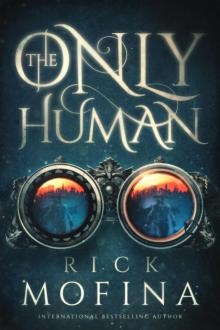 The Only Human
The Only Human Tom Reed Thriller Series
Tom Reed Thriller Series![[Tom Reed and Walt Sydowski 04.0] No Way Back Read online](http://i1.bookreadfree.com/05/tom_reed_and_walt_sydowski_04_0_no_way_back_preview.jpg) [Tom Reed and Walt Sydowski 04.0] No Way Back
[Tom Reed and Walt Sydowski 04.0] No Way Back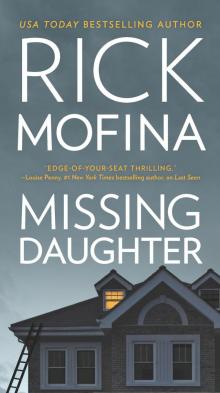 Missing Daughter
Missing Daughter Their Last Secret
Their Last Secret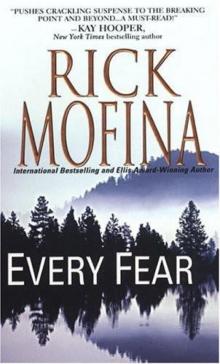 Jason Wade - 02 - Every Fear
Jason Wade - 02 - Every Fear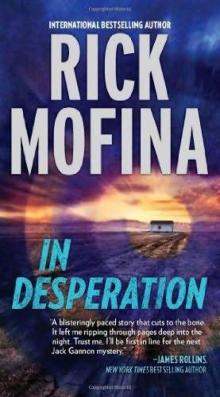 In Desperation
In Desperation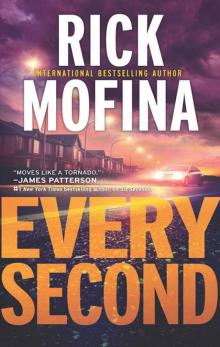 Every Second
Every Second Full Tilt
Full Tilt Search for Her
Search for Her The Last Pursuit
The Last Pursuit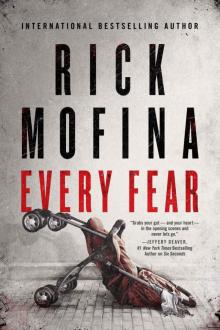 Every Fear
Every Fear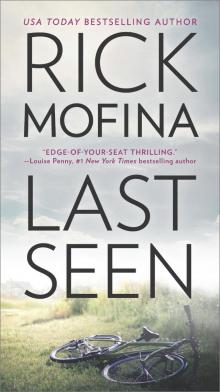 Last Seen
Last Seen The Panic Zone
The Panic Zone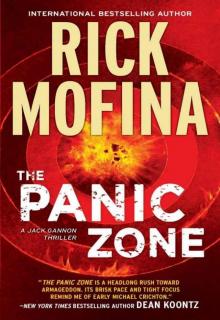 The Panic Zone jg-2
The Panic Zone jg-2 Free Fall
Free Fall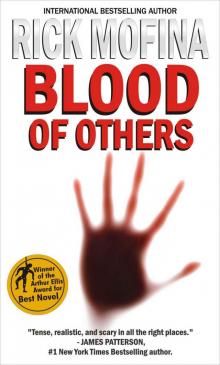 Blood of Others
Blood of Others![[Jason Wade 02.0] Every Fear Read online](http://i1.bookreadfree.com/i1/03/31/jason_wade_02_0_every_fear_preview.jpg) [Jason Wade 02.0] Every Fear
[Jason Wade 02.0] Every Fear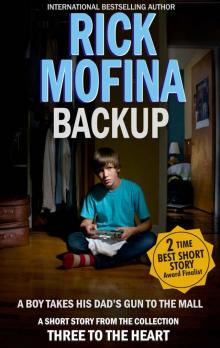 Backup
Backup Perfect Grave
Perfect Grave Into the Dark
Into the Dark Whirlwind
Whirlwind Perfect Grave jw-3
Perfect Grave jw-3 If Angels Fall (tom reed and walt sydowski)
If Angels Fall (tom reed and walt sydowski) Six Seconds
Six Seconds If Angels Fall
If Angels Fall They Disappeared
They Disappeared Vengeance Road
Vengeance Road Before Sunrise
Before Sunrise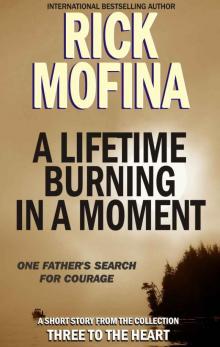 A Lifetime Burning in a Moment
A Lifetime Burning in a Moment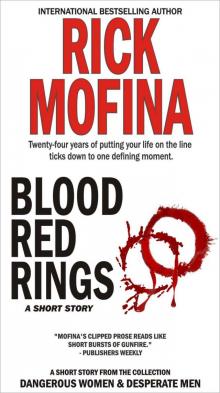 Blood Red Rings (Dangerous Women & Desperate Men)
Blood Red Rings (Dangerous Women & Desperate Men) As Long As We Both Shall Live (Dangerous Women & Desperate Men)
As Long As We Both Shall Live (Dangerous Women & Desperate Men)![[Tom Reed and Walt Sydowski 01.0] If Angels Fall Read online](http://i1.bookreadfree.com/i2/04/12/tom_reed_and_walt_sydowski_01_0_if_angels_fall_preview.jpg) [Tom Reed and Walt Sydowski 01.0] If Angels Fall
[Tom Reed and Walt Sydowski 01.0] If Angels Fall Cold Fear
Cold Fear Be Mine
Be Mine Three Bullets To Queensland
Three Bullets To Queensland